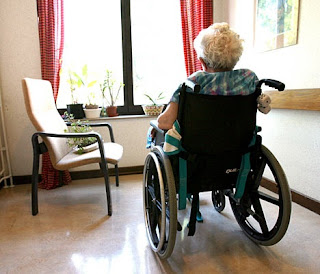By: Lisa Lambert
April 26, 2011
(Reuters) - States are short $1.26 trillion in paying for public employee pensions and other retirement benefits, a gap that grew 26 percent in one year and will take many more years to wipe out, according to a report released on Tuesday.
A total of 31 states had pensions that were underfunded in fiscal 2009, the latest year for which data is available, up from 22 states a year earlier, the Pew Center on the States reported.
The financial crisis in 2008 crushed many pension funds' investments, just as historic budget woes forced governments to cut contributions to those funds.
The combination "made a serious problem even worse," said Susan Urahn, the Pew Center's managing director.
In fiscal 2009, which for most states began in July 2008, states were short $660 billion for future pension payments and $604 billion for other retiree benefits, namely healthcare.
Growing unfunded pension liabilities on top of still daunting state budget gaps are a top concern of Wall Street rating agencies and investors in the $2.9 trillion municipal bond market. Most states are legally bound to pay retirees benefits, and they must make up for any investment loss from their already depleted treasuries or by borrowing.
Pensions are deemed "underfunded" when they are unable to pay at least 80 percent of liabilities.
Preliminary data for fiscal 2010 shows that pension funding levels of 10 states deteriorated further, while just three registered increases, Pew found.
"Overall, these results suggest that while states benefited from better returns in fiscal year 2010, the legacy of the financial crisis ... will remain an issue for years to come," Pew said in the report.
Last year, Pew found states were short $1 trillion in fiscal 2008 on promises to retirees, using data that came from before the financial crisis.
States typically assume an 8 percent annual return and their pension plans suffered a median 19.1 percent drop in their assets' market value in fiscal 2009, Pew said. One critic said the lagging data does not reflect the improvement in current conditions.
"Given where we are in time now, talking about 2009 numbers just isn't useful. The world has changed in the last 18 months," said Hank Kim, executive director of the National Conference of Public Employee Retirement Systems. "The market has come roaring back."
On Monday, Kim's group released a survey of 216 public pension funds showing the average return over the last year was 13.5 percent.
Illinois consistently has had the lowest pension funding level among states, one that worsened to 51 percent in fiscal 2009 from 54 percent in fiscal 2008, according to the Pew report. In fiscal 2010 and 2011, the state sold $7.16 billion of taxable bonds to raise money for its annual pension payments.
A year ago, Governor Pat Quinn signed into law a pension reform measure reducing benefits for new state workers, which he said would save more than $200 billion over nearly 35 years. The U.S. Securities and Exchange Commission is looking into "communications" by the state regarding potential savings or reduced contributions to pensions resulting from the law.
Five other states, including cash-strapped Rhode Island, have funding levels of less than 60 percent, according to Pew. Conversely, New York's pension is 101 percent funded, followed by Wisconsin at 100 percent and Washington at 99 percent.
States must increase their contributions when returns are low. From 2000, when the systems were well funded, to 2009 these payment requirements grew 152 percent, putting pressure on states to take dollars away from other spending areas.
Of late, Republicans in the U.S. Congress have pressed states to assume investment return rates closer to 4 percent, which they consider "riskless."
Using assumptions that private pension plans rely on, which are linked to returns on corporate bonds of about 5.22 percent, Pew found the pension shortfall for states could be as much as $1.8 trillion. By relying on a rate based on a 30-year Treasury bond, Pew found the states' shortfall could be $2.4 trillion.
(Additional reporting by Karen Pierog in Chicago. Graphic by Stephen Culp; editing by Leslie Adler)




